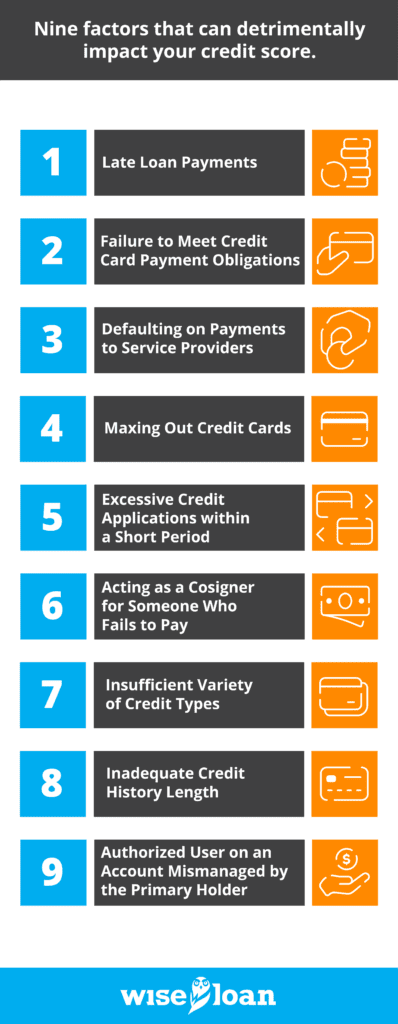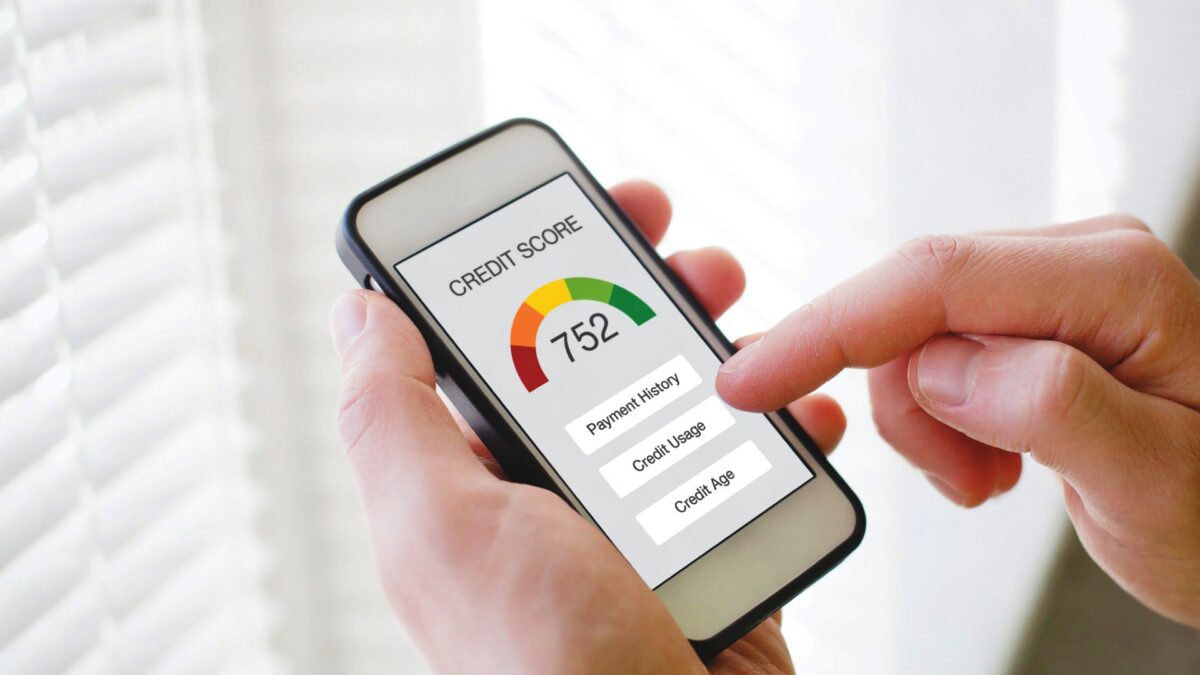Wise Loan understands that even with less-than-perfect credit, you can still qualify for a loan. They work closely with customers, equipping them with the necessary tools to responsibly repay their loans and make a positive impact on their credit.
Maintaining good credit is crucial, and here are some key advantages it offers:
- Access to loan and credit opportunities that might otherwise be unattainable.
- Potential for lower interest rates, reducing the overall cost of debt.
- Increased likelihood of securing favorable deals and obtaining services such as car insurance.
- Improved chances of being approved as a renter.
- Certain employers conduct background checks that encompass credit evaluations when evaluating job applicants.
To discover ways to boost your credit score, Wise Loan’s blog provides valuable insights. However, it’s important to familiarize yourself with the factors that can adversely affect your score before taking any action. Understanding these elements enables you to avoid or address them effectively, ultimately aiding in the improvement of your credit score. Here are nine factors that can detrimentally impact your credit score.
- Late Loan Payments
Timely payments play a significant role in determining your credit score, with payment history accounting for approximately 35% of your overall score, as stated by Experian, one of the credit reporting bureaus.
When you make late payments on a loan, the lender may report this to one or more credit bureaus. The degree of lateness and frequency of late payments determine the impact on your score. For instance, a single payment that is 30 days late over a span of several years has a lesser impact compared to three or four late payments of 60 days or more.
- Failure to Meet Credit Card Payment Obligations
Similar rules apply to credit cards. If you make a payment after the due date specified on your statement, you risk having a late payment recorded on your credit report. To ensure your timely payments are acknowledged, it’s essential to pay at least the minimum amount due by the statement’s due date. For example, if the minimum amount due is $50 and you only pay $25, the credit card company may consider it a late payment or a missed payment and report it accordingly.
- Defaulting on Payments to Service Providers
While not all lenders report to credit bureaus on a monthly basis, defaulting on payments to service providers like utilities, insurance, or internet companies can have repercussions. Typically, these providers do not report payments routinely. However, if you fail to pay your bills entirely and your account is sent to collections, the collections account is likely to appear on your credit report.
Any negative reporting item indicating failure to meet payment obligations, including defaults, collection accounts, foreclosures, and bankruptcies, has a detrimental impact on your credit score.

- Maxing Out Credit Cards
Credit utilization, which refers to the percentage of your available credit that you’re currently using, plays a role in determining your credit score. Approximately 30% of your total score is estimated to be based on this factor, according to Experian.
Your utilization rate is calculated by dividing your current credit card balance by your credit limit. For instance, if you have a credit card with a $1,000 limit and a balance of $500, your utilization rate is 50%.
When your utilization rate becomes too high, it can have a negative impact on your credit score. The Consumer Financial Protection Bureau advises maintaining a utilization ratio of 30% or less.
- Excessive Credit Applications within a Short Period
Frequent credit applications can create the impression that you’re in dire need of funds, which can raise concerns about your financial situation among lenders. Consequently, credit scoring models take into account hard inquiries when calculating your credit score.
A hard inquiry occurs when someone requests your credit report to evaluate your eligibility for a loan or other form of funding. Each hard inquiry has a slight negative impact on your score. Accumulating too many inquiries can significantly lower your score, making a noticeable difference.
It is generally advisable to limit the number of credit applications you submit. Conduct thorough research and only apply when you are reasonably confident of approval and genuinely require the specific account or loan.
- Acting as a Cosigner for Someone Who Fails to Pay
When you cosign for an individual, you agree to assume responsibility for the debt if they fail to make payments as agreed. In many cases, lenders report payment history and account information to both the signer’s and cosigner’s credit files. Consequently, if the signer doesn’t fulfill their payment obligations, those missed or late payments will also appear on your credit file. This can have a negative impact on your credit score. Therefore, it is crucial to cosign only for individuals you trust. Additionally, implementing an accountability system can help ensure that they make timely payments.
- Insufficient Variety of Credit Types
According to Experian, the mix of accounts in your credit history contributes approximately 10% to your credit score. Having only one type of account can potentially impact your score negatively due to the lack of diversity.
Lenders prefer to see that you can effectively handle both revolving and installment accounts. If you find yourself in this situation, it may be beneficial to consider applying for the type of account you don’t currently have.
- Inadequate Credit History Length
The length of time you’ve had credit and the age of each account also factor into your credit score. While it’s commonly known that individuals who are new to building credit may not have a high score (or a score at all), it’s important to note that closing an old account can have a negative impact on your credit.
When you close an account, it eventually drops off your credit report, reducing the average age of your credit history. This, in turn, may temporarily lower your credit score.
- Authorized User on an Account Mismanaged by the Primary Holder
Some individuals become authorized users on someone else’s credit card account as a means to improve their credit. Many credit card companies report the payment activity of both the account owner and authorized users to the credit reports.
However, if the account owner fails to make timely payments, reaches their credit limit, or mishandles the account in other ways, it can adversely affect your credit. It is essential to enter into such an agreement only with someone you trust to handle credit responsibly.
If you are seeking a loan but have less-than-perfect credit or if you prefer working with a lender dedicated to assisting you in improving your credit, consider learning more about applying for a Wise Loan today.
The recommendations contained in this article are designed for informational purposes only. Essential Lending DBA Wise Loan does not guarantee the accuracy of the information provided in this article; is not responsible for any errors, omissions, or misrepresentations; and is not responsible for the consequences of any decisions or actions taken as a result of the information provided above.
More information on Installment Loans and how they work in your state:











